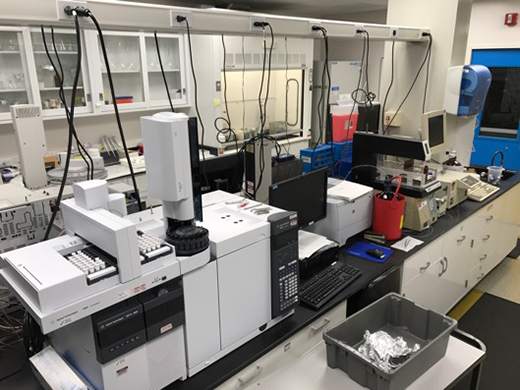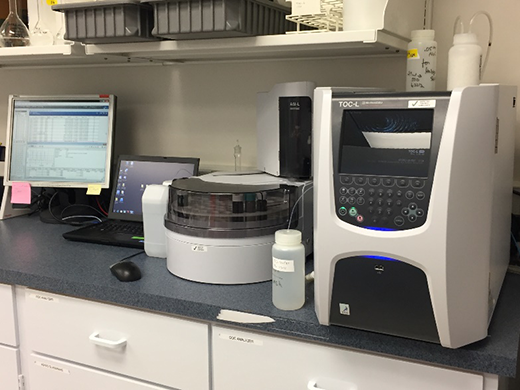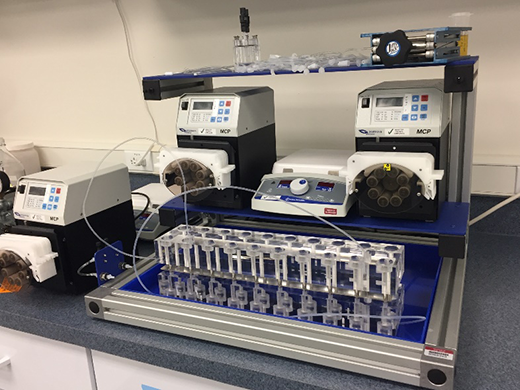Organic Chemistry Laboratory at PNNL-Sequim

MCRL's organic chemistry laboratory is designed for studies including tracking the environmental fate of persistent organic pollutants, understanding how environmental perturbations affect biogeochemical cycling at ecosystem interfaces, and studying marine and coastal resources.
The Environmental Organic Geochemistry Laboratory at PNNL-Sequim contains cutting edge instrumentation for identifying and quantifying organic molecules found in the environment. The suite of capabilities facilitates multidisciplinary studies such as tracking the storage, transport, and transformation of organic matter across the land-river-ocean continuum; evaluating the environmental fate of persistent organic pollutants (POPs); understanding how environmental perturbations affect biogeochemical cycling at ecosystem interfaces; evaluation of the production, transport, and cycling of pyrogenic material following wildfires; and studying marine and coastal resources. The major instrumentation in this lab includes:
- An Agilent triple quadropole LC-MS with in-line diode-array and ELSD detectors
- Two gas chromatography-mass spectrometry (GC-MS) systems: an Agilent 7890B GC-5977A MSD system and an Agilent 6890N GC-5973 inert MSD system
- One Agilent 6890N GC equipped with duel Agilent G2397A electron capture detectors (ECD)
- Two Agilent high-performance liquid chromatography (HPLC) systems (1100 and 1200 series) equipped with diode-array, fluorescence, refractive index detectors
- A DIONEX ASE 300 accelerated solvent extractor for extraction of diverse matrices (soils, sediments, tissues, aerosol filters, solid phase extraction disks, etc.); a gel permeation chromatography (GPC) system
- Two high-sensitivity total organic carbon analyzers for dissolved TC/DOC/DIC/TDN analyses
- A full UV-Vis spectrum Aqualog capable of simultaneous absorbance/fluorescence detection
- A CHONS elemental analyzer
- A split flow thin cell fractionation (SPLITT) system (Postnova SF2000 G) for microparticle separation
- A programmable, ramping oxidation oven for preparation of biomarker samples


